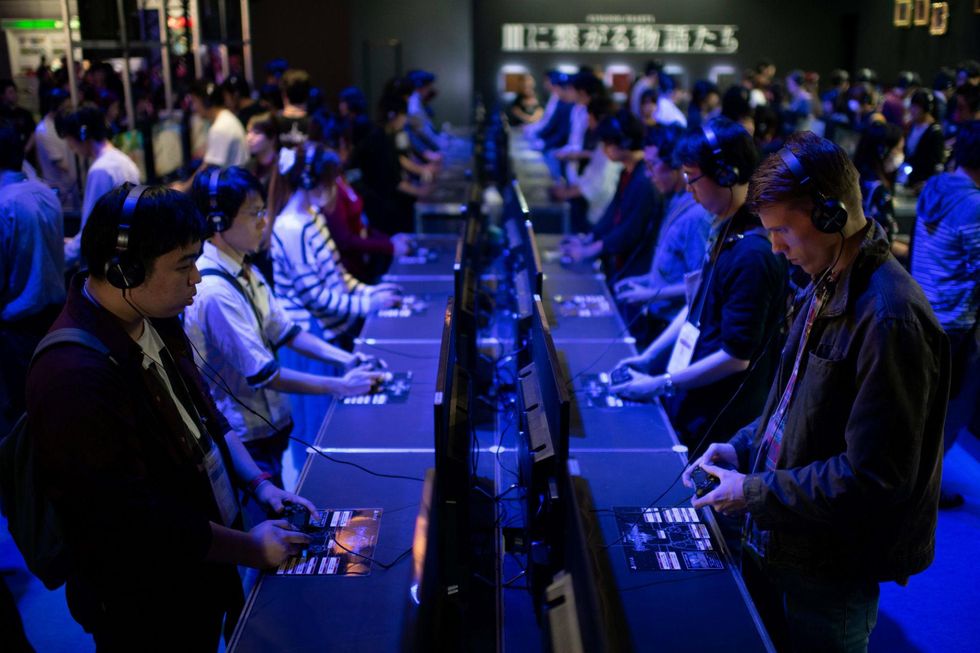
A new study links violent video games — such as "Grand Theft Auto" and "Call of Duty" — to outward physical aggression in players. (MARTIN BUREAU/AFP/Getty Images)

A new study conducted by researchers at Dartmouth University and published in Proceedings of the National Academy of Sciences links violent video games — such as "Grand Theft Auto" and "Call of Duty" — to outward physical aggression in players.
Researchers conducted 24 studies between 2010 and 2017 that included more than 17,000 participants ranging in age from 9 to 19. Researchers followed the participants from three months to four years.
Each of the 24 studies examined if — and how — playing what was considered to be violent video games impacted the child' or adolescent's real-life behaviors. The participants were monitored for their physical behaviors, such as if they hit people, engaged in fighting, or were disciplined in school.
The university's researchers concluded that "effects of violent video games extend to meaningful behaviors in the real world."
"These findings support the general claim that violent video game play is associated with increases in physical aggression over time," the researchers' conclusion said. "We hope these findings will assist the field in moving past the question of whether violent video games increase aggressive behavior, and toward questions regarding why, when, and for whom they have such effects."
Jay Hull, lead author of the study as well as associate dean of faculty for the social sciences at the university, said, "Although no single research project is definitive, our research aims to provide the most current and compelling responses to key criticisms on this topic."
"Based on our findings, we feel it is clear that violent video game play is associated with subsequent increases in physical aggression," Hull said.
Hull added that the effect may be small, but it is reliable.
"A lot of people ask, do these games really cause these kids to behave aggressively? I would say that is one possibility," he said. "The other possibility is that it's a really bad sign. If your kids are playing these games, either these games are having a warping effect on right and wrong or they have a warped sense of right or wrong and that’s why they are attracted to these games. Either way you should be concerned about it."
In June, the World Health Organization officially added "gaming disorder" to its growing list of mental health conditions.
Playing video games must cause a person “significant impairment in personal, family, social, educational, occupational or other important areas of functioning” in order for patients to qualify for being diagnosed with the disorder.
According to the organization, “Gaming disorder is characterized by a pattern of persistent or recurrent gaming [behavior] … which may be online … or offline, manifested by: 1) impaired control over gaming (e.g., onset, frequency, intensity, duration, termination, context); 2) increasing priority given to gaming to the extent that gaming takes precedence over other life interests and daily activities; and 3) continuation or escalation of gaming despite the occurrence of negative consequences.”